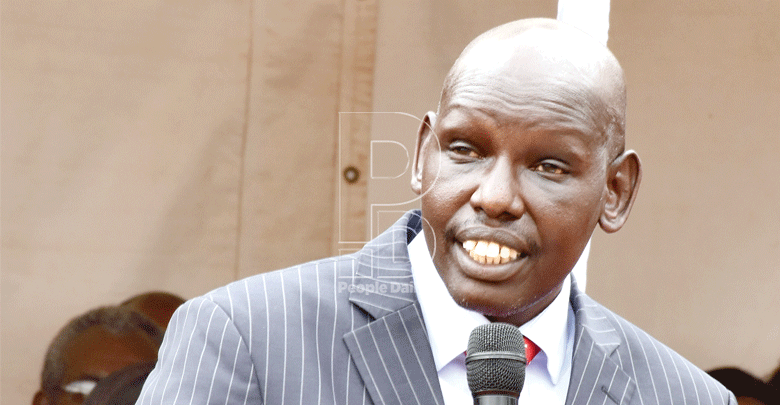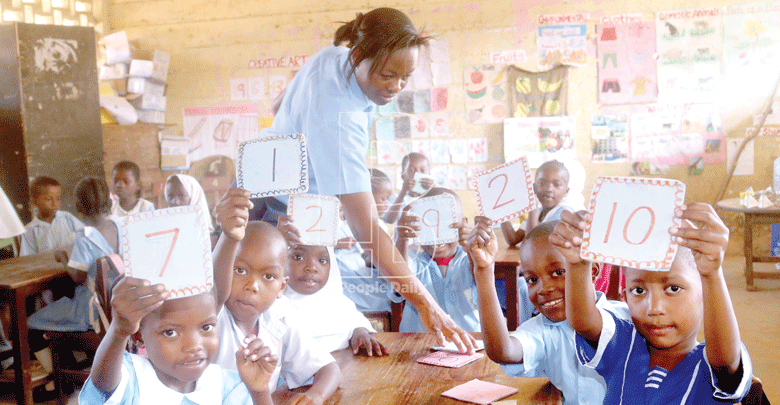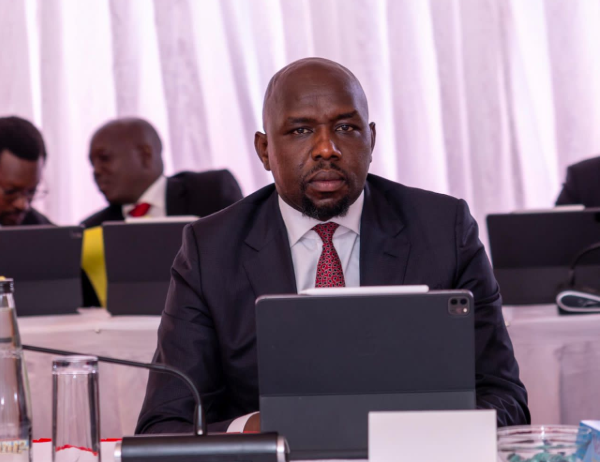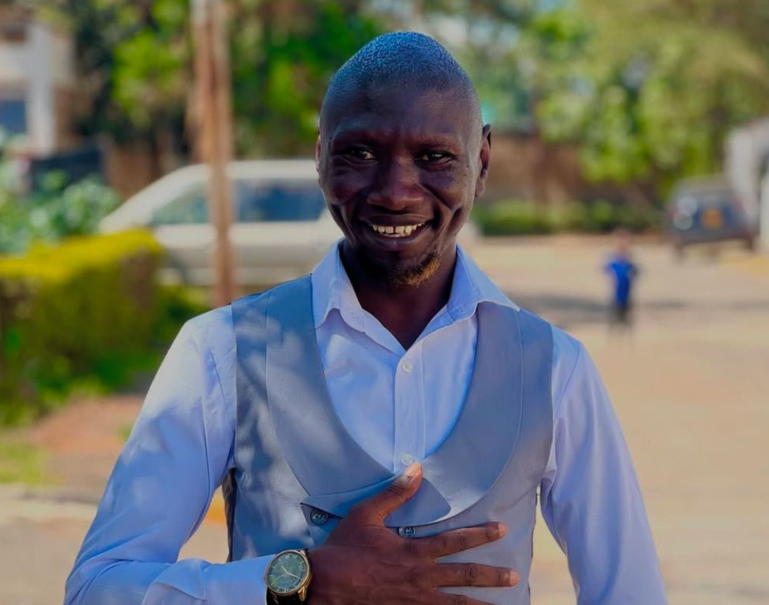State now insists enough teachers trained for CBC
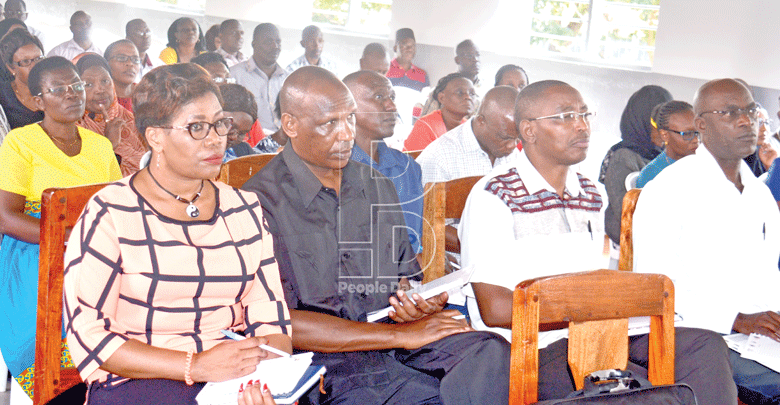
Reuben Mwambingu @reubenmwambingu
More than 113,000 teachers from both public and private schools have so far been trained on the Competency-Based Curriculum (CBC).
Teachers Service Commission (TSC) Chief Executive Officer Nancy Macharia says 90,806 tutors are from public schools and 22,417 from private schools.
“A total of 113,223 teachers were trained in April 2019 in Early Grade 1.2.3 and Grade 4 in readiness for implementation of CBC,” Macharia said during the launch of Quality CBC Education in Kenya County Dialogue at Shimo La Tewa High School in Mombasa.
Noting the commission intends to train 225,000 Early Grade and Grade Four teachers, by the end of this year, the TSC boss said more teachers will be trained in December, 2019.
“We are actually talking of all the teachers in primary school because that is the number of teachers we have currently.
It means that we will have trained all of them, so we will continue training them as we go to other grades such as Grade Four until all teachers are fully equipped with the requisite competencies,” said Macharia.
This is even as Kenya National Union of Teachers (Knut) and Kenya Union of Post Primary Education Teachers (Kuppet) officials maintain the country is not prepared for CBC roll-out.
Mere seminars
Knut’s Mombasa branch Secretary General Dan Aloo and Executive Secretary Stephen Ouma said without proper structures in place, it will be futile to expect success in the new curriculum.
“They are telling us that the train has left the station but it has left everybody behind including the driver and the conductor,” Aloo said.
“You cannot expect CBC to be successful when you have not trained the teachers adequately and you have not put the required structures in place. The trainings are mere seminars which are not adequate to equip the teachers with requisite skills to handle the curriculum,” he added.
Ouma termed the launch of the CBC county dialogues as knee-jerk reactions by the Ministry of Education after the government “realised that they had goofed in the CBC rollout and it was bound to fail”.
He said ministry officials are now coming out to cover-up after realising that they had blundered. “How can you launch a programme then return to carry out public participation? The whole thing is ashambles,” he said.
However, Macharia insisted that all what the tutors need is to have the confidence to deliver the CBC after the training and orientation, adding that the government has already committed funds to meet the cost of the training and orientation.
Kuppet Mombasa Branch executive secretary Lynette Khamadi said since Grade Three pupils will join Junior secondary school in a few years, the Sate must ensure there is adequate infrastructure, enough tutors and learning materials before hand.
Macharia said in the current financial year 2019/2020, TSC has been allocated funds to recruit 5,000 teachers on permanent and pensionable terms.
Another Sh1.2 billion will be used to engage interns to help address teacher shortage. “We hope this prompt intervention will go a long way to address the teachers’ shortage as we continue with the implementation of CBC,” she added.
In February, Macharia told the National Assembly’s Education committee, chaired by Julius Melly, there are 309,000 trained teachers unemployed. There are currently about 216,500 teachers in primary and 100,500 in secondary schools.
She said there is a shortage of 37,643 tutors in primary and 49,750 in secondary schools. TSC expects the deficit to widen in future, hurting teacher-student ratio, with secondary school level tipped to feel the heat more.
Last week, Macharia said the on-going county dialogues will pave the way for the National Education Conference on Curriculum Reforms scheduled for August 16.
The forum is expected to enable the sharing of all the county-specific issues raised from the grassroots, collate relevant monitoring reports and discussion of critical lessons learnt on the CBC.
The conference will form the basis of a Roadmap for CBC rollout in Grade Four in 2020. “In preparation for this conference, the ministry has lined up sector-specific pre-conferences that will generate position resolutions to be shared at the conference.
During the on-going county dialogues, the Kenya National Examinations Council (KNEC) will be releasing findings of some assessments,” said the teachers’ employer.
Low achievement
Macharia said in order to ensure provision of quality education, there is need to regularly collect empirical data on the learning outcomes, as well as on the predictors of learner achievement. This is provided for in Kenya’s legal frameworks guiding provision of quality education, such as the Basic Education Act, 2013.
So far, Monitoring Learner Achievement Studies have been conducted through the support of the Kenya Primary Education Development (PRIEDE) Project over the last 12 months.
“These studies have profiled learner characteristics in terms of knowledge, skills, attitudes and competencies. The studies have revealed areas of concern such as low achievement levels, especially of 21st century skills such as critical thinking and analytical skills among others.
Kwale Kuppet Secretary Omar Mbuli said the majority of pupils in the county do not even have birth certificates, a prerequisite in Nemis registration. “In Kwale we are still looking for birth certificates… without the documents, it is impossible to enrol students on the system,” he said.
